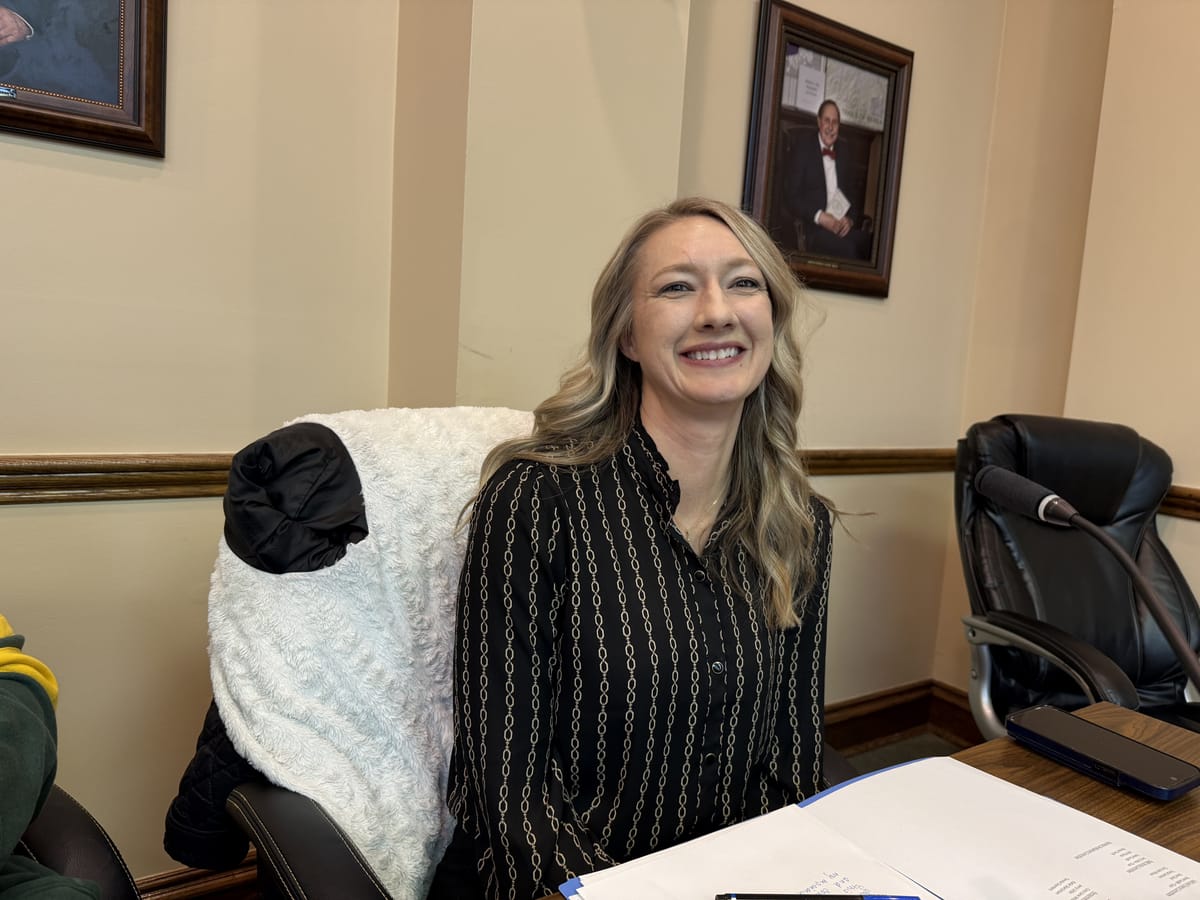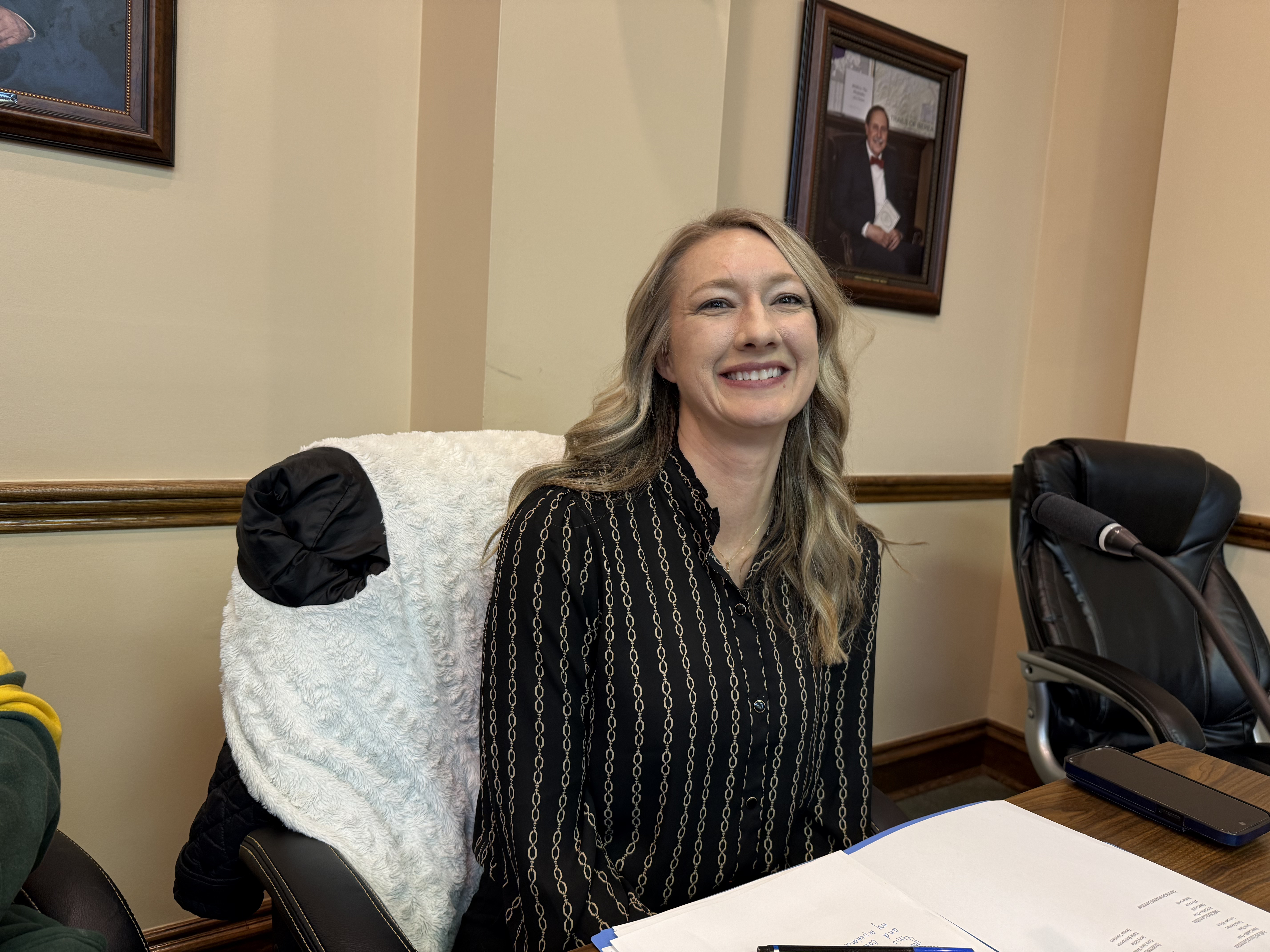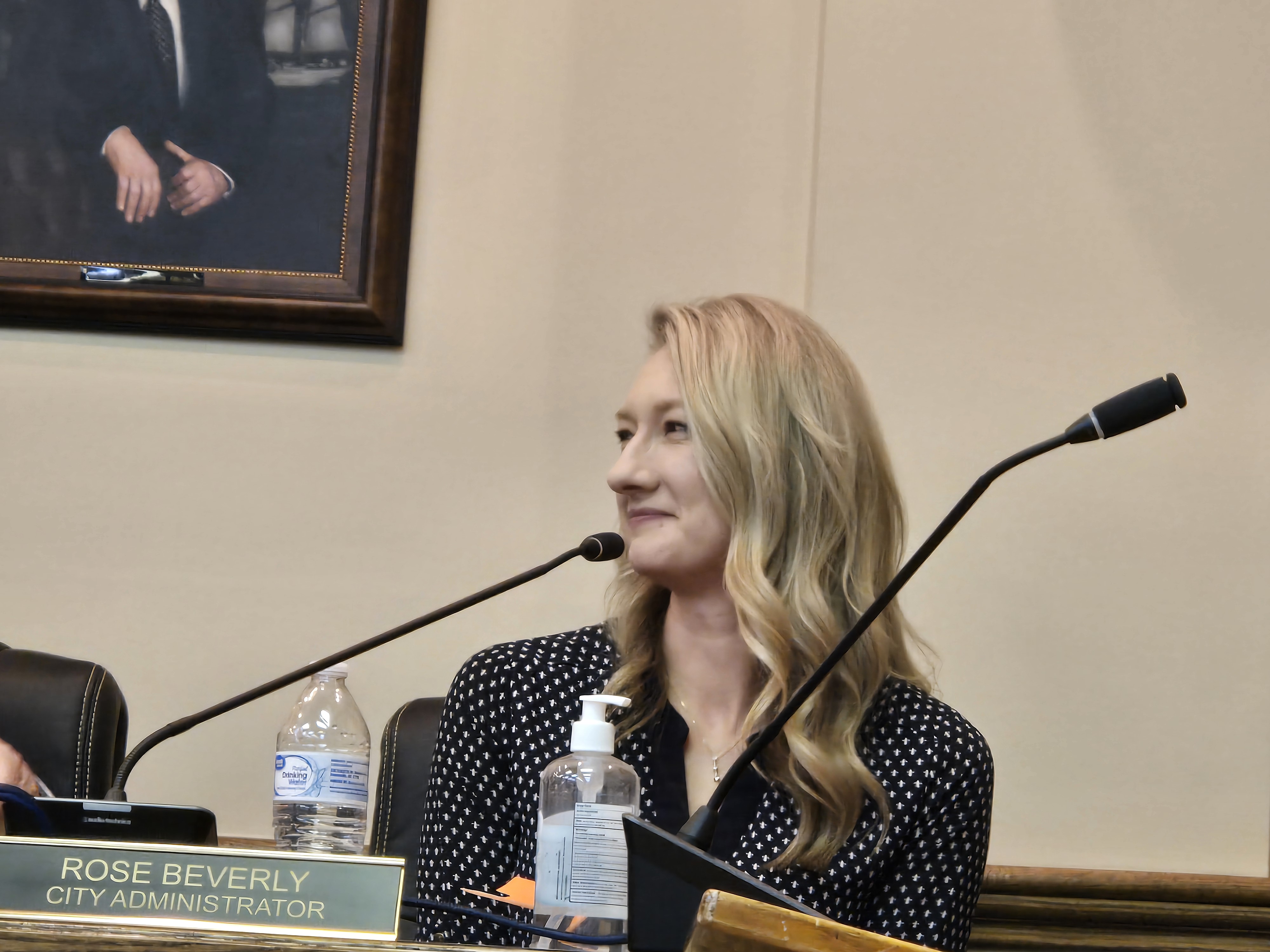Outgoing city administrator to College and City: 'work together more'
To the rest of us, 'Be nice to City staff!'


Berea’s city administrator for the past three years, Rose Beverly, is moving on to become the city manager of Paris, Texas. Her last day on the job here is January 15.
The consensus among Councilmembers and Mayor Bruce Fraley, all of whom praised Beverly at this week’s City Council meetings, is that she is forward-thinking, professional, and an advocate for City personnel.
“The thing that I will remember most is that you advocated for your employees at every juncture,” Councilmember Steve Caudill told Beverly during the January 7 Council meeting. “Your job is one that touches more lives in this city than probably anyone else’s but maybe no one really even knows how much work you put into that. We will all miss you greatly.”
The Edge sat down with Beverly over lunch to discuss her time here, why she’s leaving, and what she thinks Berea could do to become a tourism powerhouse.
This interview has been edited for length and clarity.
The Edge: So, what is it about Texas that is calling you away from Kentucky?
Rose Beverly: It’s an opportunity to take on more responsibility and for me to grow more in my skills.
TE: What’s the difference between a city administrator and a city manager?
RB: A city manager role typically has more control over personnel and day-to-day operations, but it can vary from state to state.
TE: Even though you’re leaving, you must still have a vision of what would be good for the City of Berea.
RB: I think the City has so many great things to offer, but it can also be kind of parochial, you know – people wanting to stay in their own lane. The City has more resources than most places would even dream of, but everyone is off doing their own thing.
TE: Can you be more specific, please?
RB: For example, Berea College kind of does their own thing with tourism, we do our own thing with tourism, then the Artisan Center does it’s own thing. But if we all come together somehow, then I think we’d accomplish so much more. We could be even more of a destination. The College is such a big organization, but they do bring people in for tourism and for special events. There is such an opportunity there. We could make things even better.
TE: Why isn’t there more collaboration?
RB: I am not sure they ever did work together. Bruce [Mayor Bruce Fraley] has been communicating with Dr. Nixon [Berea College president, Cheryl Nixon] more now. But, the mindset at the top can be in agreement, but it has to be directed down. There has to be encouragement from the top, connecting those dots, having the meetings, and so on.
TE: So, what’s an example of how you think the City and the College could work together?
RB: The College is what started the city, but the city provides things that make people want to live here. So, if the College is going to attract people to work there — high quality people — it’s the streets and the trails being nice, and all the services we provide being top notch that helps with that. They do need us to do that. The City needs the College, because they are our history. The College Square, would be a great place for the two to work together for tourism and to showcase the town’s history.
TE: When people see how amazing Berea is when they come as a tourist, then what? How do you accommodate the influx when they move here?
RB: I think you have to be strategic. We have a comprehensive plan, with buffer zones to keep houses from being right up against factories, but also to have them where the infrastructure is already in place. Infrastructure is more expensive than ever right now. Getting the pipes in the ground costs more than at any other time now.
TE: But how do you keep the growth manageable?
RB: It’s a double-edged sword. If you don’t bring people in, you don’t support the businesses, but if you do that, then people do come to town and some want to stay here. But, I say that you’re either growing or you’re dying. You have to pick one. You can never stay stagnant.
Also, people with private land that want to create developments, if they come to us with a plan that fits in with our land use regulations, we can’t say no.
We’re lucky that we’re growing at a rate that is not too fast, so we can make sure that our infrastructure can handle it, so we can process and deliver the water to all the houses, and that we have the police who can patrol the neighborhoods. We try to be careful, but I have seen in other cities where when private developers want to develop the land, the city can only do so much to stop it.

TE: What if the City were to put some money aside to purchase land for open space purposes? Have a referendum, that sort of thing?
RB: That can happen, but not very often. Usually, a town will do that if it’s just for a buffer zone in between developments and industry. But that isn’t really done to stop growth. A city has to provide jobs so you have to have the comprehensive plan to be strategic about how you use the land.
TE: What would have been the things you’d have continued to work on if you were going to stay?
RB: Keep working to build up trust between the City and the city staff. I have been trying to do that. I think trust is broken in the world. The online warriors are hard. It’s hard on the staff. You have a staff that does its best and with a big heart, and then you go online and you see the mean things being said. People are distrustful. This staff is so enthusiastic and they love Berea so much. It hurts when they see the negative things said online.
TE: So what can be done about that?
RB: The City could do a better job of explaining the why of what we do. There is a guy coming in at the end of April, a social media expert. He will help us tell our story. Let’s say we’re going to make a controversial change to a traffic pattern. Then we can put out information in advance, and then while they are doing it, so that people aren’t frustrated that things are happening and they don’t know why.
It helps a lot if people understand the why of things, even though you will always have people who complain.
TE: So you’ll be using Facebook mostly to communicate?
RB: And Instagram, and LinkedIn, TikTok if it’s still allowed [the US Supreme Court is hearing a case that could result in a federal ban on the Chinese-sponsored social media platform]. We don’t have a PIO [public information officer], but in each department, we do have a person who posts on social media. So, they will be trained with this guy to tell our story, which is really just that there are people behind all the decisions being made and the people are trying to do the right thing.
TE: What will you miss most about living here?
RB: I will miss the absolute beauty of Kentucky, and Berea in particular. I don’t think people realize how beautiful it is here. It’s special here. I will also miss the friendliness of the people here. You an just walk into a room and they will just talk to you. I really have enjoyed that.
TE: What surprised you most about Kentucky when you arrived?
RB: Again, the beauty, and the hiking. I had no idea it was so beautiful here. I think Kentucky is so underrated.
TE: Any parting words?
RB: Thank you so much for giving me the opportunity to be a part of the community here. It’s been a wonderful experience and I am grateful to have worked with the City staff. They embraced me, and they are very professional, wonderful people. The Council also cares a lot about the community.
The Edge is a reader-supported publication. To receive new posts and support your hometown source for news and information become a subscriber.
Update: On January 14, 2025, 11:39am, Berea College’s president, Dr. Cheryl Nixon was updated to reflect her correct name. Previously, it was reported as “Cynthia Nixon”.



